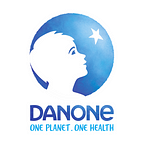Vanilla is used extensively in many major industries, from cosmetics to food, all over the world. But 80% of the production is concentrated in one of the poorest regions on the planet: the North-West of Madagascar. Farmers there are facing multiple difficulties, which impact their revenues, their families and the quality of the vanilla they grow. With the support of Danone, the Livelihoods Fund launched a project that could change this situation, and perhaps the vanilla industry along with it.
The Livelihoods Fund for Family Farming (L3F) is an impact investment fund created by Danone in partnership with Firmenich, Mars and Veolia. It aims to support companies’ efforts to make their sourcing more sustainable. “We focus on agriculture and smallholder farmers who represent a major part of the companies’ supply,” explains Bernard Giraud, president & co-founder of Livelihoods Venture. Since Danone, Firmenich and Mars source the bulk of their vanilla supply from Madagascar, they decided to invest in a large-scale project in the area that will foster sustainability and reduce poverty along the supply chain. To maximize their impact, they are partnering with Prova, a supplier to Mars, and Fanamby, a local NGO that will implement and monitor the project.
Building a fairer supply chain
Vanilla farmers in Madagascar often lack the practices and finances to grow high quality vanilla and plan their sales ahead. This often results in farmers selling poor quality vanilla and at a low price, perpetuating the poverty trap. Vanilla prices have also been subject to severe volatility due to a lack of cash flow, pushing farmers to harvest their vanilla too early and leading to poor quality in the market. Cyclone Enawo, which struck Madagascar in March 2017, further complicated the situation with the toll it took on harvests.
“Today the vanilla market is disorganized, with hectic prices and decreasing quality at the expense of farmers and the industry. Through the Livelihoods Fund, companies want to make their vanilla supply chain more sustainable, not only by securing quality vanilla, but also by making sure that the farmers who produce this vanilla have decent revenues,” Bernard Giraud said.
Created together with Danone and its partners, the L3F project provides long-term support to vanilla farmers. Over the next five years, it will provide farmers training in agroforestry techniques, helping them learn sustainable practices that can increase their productivity and the vanilla quality. A new farmer-owned cooperative, structured by Fanamby, will collect the vanilla, cure it and export it directly to the project partners.
This new supply chain will allow 60% of the value generated to go to the farmers, as opposed to the 5% to 20% they see today.
Paul Gardner, VP One Direct Sourcing adds that the initiative fully aligns with Danone’s corporate responsibility project: “Danone recently unveiled a new motto — “One Planet. One Health”. We have to play a positive role in our ecosystem, as well as for the health of consumers and workers in our ecosystem. We have a responsibility to ensure that our sourcing activity is respectful of the planet, […] but also respectful to the people, giving a fair price, dignity and healthy working conditions. This is why we have created the Livelihoods Fund to make changes at large scale.”
Strengthening food security and biodiversity
In addition to vanilla, the project will focus on food security, with rice production and crop diversification, so that farmers can get a more balanced food intake. With vanilla and rice production, 6,000 hectares of land will be managed through sustainable farming practices.
The Livelihoods project will also contribute to the protection of a tropical forest from illegal logging and “slash and burn” practices by offering alternative economic opportunities to farmers, such as clove production and poultry farming. “By empowering farmers with simple, efficient and replicable farming practices, by supporting farmers’ organizations, the Livelihoods Fund’s project aims toimprove Madagascan farmers’ lives while providing companies with quality vanilla and preserving the island’s biodiversity,” Bernard Giraud says.
Sharing the risks and benefits
To ensure its stability and sustainability, all partners have committed to the project over a 10-year period. “Livelihoods funds are built on an innovative investment model where companies can share risks and benefits with NGOs, business partners and public institutions,” details Bernard Giraud. “With L3F, (…) we build coalitions to share means and costs in order to create mutual value for the farmers, for the companies and also for the planet.” This model is at the heart of ten new projects that L3F is currently working on, which focus on strategic resources for our investors like for example, milk, cocoa, watershed protection, sugar cane, and more.
Are partnership initiatives like L3F a new way to transform the agricultural industry? Paul Gardner is convinced they are. He concludes: “Today, partnership is the only way to succeed. […] By working together we can deploy scientific evidence to improve our agricultural practices or technological tools to create traceability in our chain, and look collectively on how to fund such changes. We are all interconnected, so partnership is the most efficient way to make an impact at a significant level. Indeed, the Sustainable Development Goals released in 2015 have identified Global Partnership as the Goal 17 to succeed in achieving the 16 first ones. This is a sine qua none condition to make sustainable development work.”
